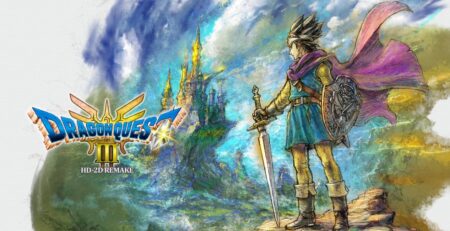
Content Warning: Final Fantasy I II III: Memories of Heroes contains scenes involving suicide.
Final Fantasy I II III: Memories of Heroes is published by Yen Press, written by Takeshi Umemura, and translated by Jennifer Ward. Within the world of Final Fantasy, there are four crystals. These crystals preserve the balance of the world and keep all things in harmony. But when the darkness grows too strong, and the balance is threatened, legendary Warriors of Light will rise to restore order to the world.
Long before Final Fantasy melded high fantasy elements like spell sling wizards with cloned SOLDIERS and space-faring threats, it gave us more classic tales of fantasy. These earliest adventures of the series, brought to the world in all their 8-bit glory, were stripped down affairs compared to the modern iterations we see today. But, as the six-year-old I was the first time I saw a game box with the words Final Fantasy on it, they invoked wonder and adventure nonetheless. Not to mention, they provided an insurmountable challenge as I was only six and the game rental store never provided an instruction booklet with the game.
Still, that early captivation brought me back to the series years later when some of my favorite games of all time came along. Final Fantasy VIII was the first full-sized RPG I ever bested, as well as the first video game to ever make me cry. And still to this day, despite some rough entries along the way, I still get excited whenever I learn of a new installment in this ageless franchise. And it all began with four crystals, four heroes, and a world threatened by darkness.
Final Fantasy I II III: Memories of Heroes provides novelizations for the original three entries in the series. Given the fact that Final Fantasy II and III wouldn’t reach American shores till many years after their original releases (the games America first got under those titles were actually the fourth and sixth games in the series), these tales may not be known even to some of the more die-hard of modern fans. This collection does a great job of delivering a retelling of those classic stories, even to the point of bringing their many faults and shortcomings along for the ride.
If you are old enough to remember the 8-bit era or have experienced it in one of the countless classic rereleases, you know storytelling was sparse in the best of times. Final Fantasy I II III: Memories of Heroes does nothing to compensate for this. Rather than attempt to flesh out these stories with added scenes to better explain concepts or character motivations, it adheres strictly to the style of story that is contained within these early games. This delivers an authentic feel to these versions of the stories.
In this way, the book delivers a window into gaming’s past. By not prettying up the plot, it allows readers to experience these stories, without the further shortcomings of the actual games. And although the plot is often bare-bones, and character arcs are rarely what I would call deep, there is a lot of fun to this style of story I had long ago forgotten.
Each of the three stories contained in Final Fantasy I II III: Memories of Heroes begins in pretty much the same way. Four heroes are delivered a message that they are the Warriors of Light, destined to save the world. And just like that, they are off, sometimes without more than a vague clue about where they should start their equally vague quest to save creation. They nonetheless dive in with gusto and, of course, every hunch and idea ends up propelling them along their journey.
This inability to suffer a setback quickly removes any real stakes from its stories. In exchange for that, it brings an enthusiasm and optimism that I found extremely charming. This book is just fun. These stories are simpler things than most fantasy these days. And while I love much of what modern fantasy delivers with complex characters and endless shades of grey in its narratives, it was so refreshing to read some simple good-against-evil adventures.
Along with the positivity, Final Fantasy I II III: Memories of Heroes also serves as an interesting example of how, even between these early games, the story was increasing. With the stories landing at 40, 60, and 80 pages respectively, each tale grows more fleshed out than the last. Adding a few new wrinkles to the plot and characters, the reader gets to watch the series grow at a brisk pace.
It is also the short length and easy plot lines that I think make this collection a potentially great book for younger readers. It starts simple and, while staying that way, each story grows enough to make a learner feel like they are making strides, at least as long as the adult in charge is ok with the content therein.
As one would expect, there are numerous battles with fell beasts and monsters. While none of these battles would ever fall into what I would call gory, there is more description of some of the more brutal wounds than I expected. That coupled with incidents within the final book where characters, having fulfilled their roles in the story, welcome their deaths, basically killing themselves, this story might not be suitable for some younger readers.
In the end, Final Fantasy I II III: Memories of Heroes delivers a trio of fun, easy to read stories that provide uplifting narratives of heroes standing against the darkness that threatens their worlds. Whether one approaches these stories wishing to learn about the origins of their favorite JRPG series, out of a desire for an easy read, or as a gift to a new reader, there is plenty to be found in this collection.
Final Fantasy I II III: Memories of Heroes is available now.
Final Fantasy I II III: Memories of Heroes
TL;DR
In the end, Final Fantasy I II III: Memories of Heroes delivers a trio of fun, easy to read stories that provide uplifting narratives of heroes standing against the darkness that threatens their worlds. Whether one approaches these stories wishing to learn about the origins of their favorite JRPG series, out of a desire for an easy read, or as a gift to a new reader, there is plenty to be found in this collection.




